Resumen: Las habilidades sociales son entendidas como los comportamientos que valoran a la persona como ser social. Objetivo. El presente artículo de revisión sistemática tiene por objetivo identificar la aplicación de estrategias de habilidades sociales en las bases de datos Scopus, Scielo, Redalyc, DOAJ y Latindex, publicadas entre los años 2018 al 2020, en el nivel de educación primaria. Materiales y métodos. Se trata de un estudio cuantitativo, descriptivo, con una muestra final de 15 artículos de los últimos 3 años en revistas indexadas. Resultados. Luego de aplicar criterios de inclusión y exclusión se seleccionaron 15 artículos potenciales, los cuales evidenciaron investigaciones realizadas con relación a las habilidades sociales. El desarrollo de las habilidades sociales favorece en la formación integral de los estudiantes, siendo un ámbito de investigación que requiere mayor atención por parte de los investigadores, para fortalecer la inmersión de ellos como ciudadanos comprometidos con su sociedad.
Palabras clave: Educación, habilidades sociales, interacción social y docente.
Abstract: Social skills are understood as the behaviors that value the person as a social being. Objective. The present systematic review article aims to identify the application of social skills strategies in Scopus, Scielo, Redalyc, DOAJ and Latindex databases, published between the years 2018 to 2020, at the primary education level. Materials and methods. This is a quantitative, descriptive study, with a final sample of 15 articles from the last 3 years in indexed journals. Results. After applying inclusion and exclusion criteria, 15 potential articles were selected, which evidenced research conducted in relation to social skills. Conclusion. The development of social skills favors the integral formation of students, being an area of research that requires more attention from researchers, in order to strengthen their immersion as citizens committed to their society.
Keywords: Education, social skills, social interaction and teacher.
Systematic review of strategies for developing social skills in education
Recepción: 03 Octubre 2020
Aprobación: 21 Febrero 2021

The personality and the way people act are formed from childhood, and achieving an adequate development in them as future citizens will allow building a solid society Samimi, (2021) therefore, in the formation of children's personality it is relevant to attend to the cognitive, physical, mental and emotional development; for which the family and the community play a significant role in their lives. In this sense, the environment in which a child grows is fundamental for his or her adequate development (Aguilar et al., 2021, p. 32).
Thus, social skills are learned as the child interacts with this environment Almaraz et al., (2019). The basis of the vision that they generate of their context is given in the school stage, where they are also acquiring skills such as differentiation of good and bad, what is accepted by society, empathy, assertiveness, demonstration of feelings, among others (Dávila, 2018) It is transcendental the development of these skills so that they are able to generate good relationships with others, avoiding making negative judgments towards the other person.
It is through education that the generations can achieve high intellectual performance, thus demonstrating their personal and professional skills, but it is also important to instill in them, good habits and values. For this purpose, the teaching and reinforcement of social skills should be emphasized, with the main objective that students develop appropriate behaviors according to society. However, today many schools prioritize intellectual training and do not emphasize other aspects that contribute to the integral development of the person Shodiq& Syamsudin, (2019), Firmansyah etal., (2020), such as art, culture, sports, social life, etc., as well as the development of the social skills.
It is important to manage emotions to develop social skills (Samimi et al., 2019) because it allows the student to be able to fearlessly express their feelings and be empathetic with others. Through the implementation of social skills programs, it has been possible to improve respect for the person, assertiveness, communication (Almaraz et al., 2019) and (Fernandez et al., 2020) the decrease of anxiety.
This raises the following question: What strategies have been applied for the development of social skills in elementary school students? One strategy used for the development of social skills in elementary school students is sports games, since they allow them to constantly put into practice their responsibility, their participation in teamwork and communication. Likewise, programs based on physical activities in an inclusive context have improved motor and social skills in students, showing bonds of affection among them.
Another strategy applied in elementary students with autism is music therapy, which evidenced that it improves the ability to understand, respond and interact with their peers (Bharathi, Jayaramayya, et al., 2019, p. 43). Likewise, the teacher can take advantage of developed technology such as the creation of virtual environments to simulate social situations in which values can be taught to the student. This requires competent teachers who know the technological resources and how to use them to improve social skills and learning. On the other hand, it is necessary for the teacher to apply cooperative learning when developing the competency-based curriculum Tello et al., (2015)Gamboa et al., (2019) to encourage interaction among children.
Social skills aim to improve interactions and emotional management. A child who demonstrates being able to establish a dialogue with others, adapts easily to their context and shows appropriate and rational behaviors, will be a more confident child in school and unlikely to develop anxiety or worry, (Samimi et al., 2019, p. 44). There is research where there is evidence that if there is an optimal development of social skills it can be a direct driver to academic success. For this reason, it is important to develop social skills from an early age, to ensure successful children, and that they can perform safely in these highly competitive and challenging contexts.
The present work performs a systematic bibliographic research, in which the documentary research method was applied with a descriptive approach, performing a comparative analysis of the results obtained. The inclusion criteria for this systematic review were articles published between the years 2018 - 2020 on strategies applied for the better development of social skills in children aged 6 to 12 years. The selected articles were sought to be indexed in the Scopus, DOAJ, Latindex, Redalyc and Scielo databases; in the Spanish, English and Indonesian languages.
Articles were selected with a qualitative, quantitative and mixed approach, with pre-experimental and quasi-experimental designs. Semi-structured qualitative in-depth interviews and focus groups were also conducted to address the research questions. Likewise, descriptors were used in Spanish such as: habilidades sociales, educación primaria, conductas, programas, actividades lúdicas; and in English such as: social skills, Elementary education, appropriate behavior, children, life skills. Emotions, socialization, development
The exclusion criteria were taken into account, those researches of nature such as congress abstracts, letter to the editor, report, systematic review.
In the present review, a total of 15 articles were selected which met the inclusion and exclusion criteria. After the collection, tabulation and codification in an Excel instrument, the results were presented in tables and figures taking into account the frequency of the variables, designed for this research.
From the 15 articles selected for the systematic review, 12 of them were published in English, 2 in Spanish and 1 in Indonesian, where the application of strategies for the development of social skills has occurred with elementary school students. Table 1, shows the number of journals indexed according to the database, where 12 of them were indexed by Scopus, 5 in DOAJ, 4 in Latindex, 2 in Redalyc and 2 in Scielo, in which they develop the application of strategies on social skills in different contexts.
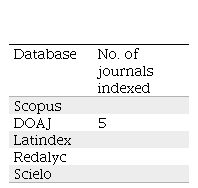
Table 2, shows the year of publication of the selected articles regarding the application of strategies on social skills, where 5 were published in 2020, 8 articles in 2019 and 2 articles in 2018.
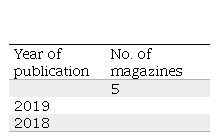
igure 1 shows that the distribution of articles by country of publication had a maximum of 2 articles published in the following countries: Indonesia, Turkey and Spain; and a single article in Mexico, India, Peru, the United States, Iran, Taiwan, Australia, Greece and Brazil. In most of these investigations, the quasi-experimental design was used.
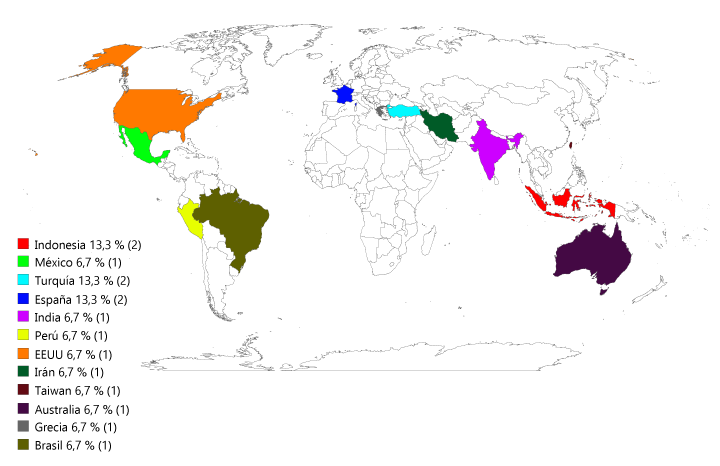
Likewise, Table 3 shows that Asia is the continent with the most articles published that develop social skills strategies, with a total of 7 articles. On the other hand, America has a total of 4 articles, Europe with 2 articles and Oceania with one published article.
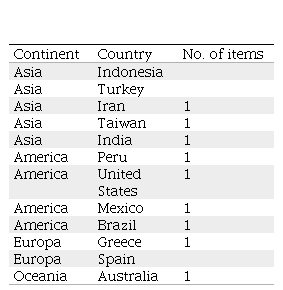
Table 4 shows the strategies applied for the development of social skills in primary education used in each research. From the results, it can be identified that the most used strategy is based on the development of physical activities, as shown in 5 of the articles. On the other hand, different strategies have been applied such as cooperative learning, emotion regulation and music therapy; which have been developed in 2 articles each. Finally, other strategies such as restorative practice, ludic activities, video feedback and video games have been implemented; having one article for each strategy.
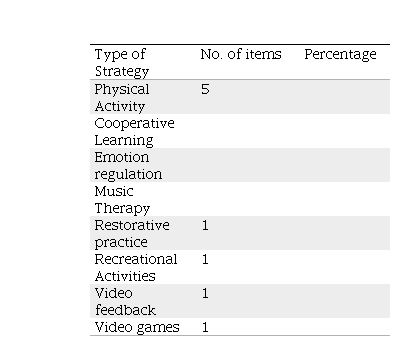
It can be seen that the strategy based on emotion regulation presents a significant sample of 1234 students explored in the article Effectiveness of a school-based life skills program on emotional regulation and depression among elementary school students: A randomized study, developed in Taiwan, published in 2020.
Table 5 shows the number and characteristics of the sample according to the articles investigated, whose ages range from 6 to 12 years. It can be seen that 2 articles present a sample involving children with autism spectrum disorder (ASD).

Finally, Table 6 shows the results with their respective strategies used for the development of social skills in elementary school students. These results, in each of the investigations, have effectively achieved the objectives set for the well-being of the students.

From the selection of the 15 articles for the elaboration of the systematic review, the information provided in the research of the selected articles between 2018 and 2020 was analyzed objectively. In them, strategies to develop social skills are applied, being physical activities, the one with the highest frequency. The strategies applied in elementary students show as results the improvement in interactions with their classmates, in assertive communication, in the expression of non-verbal behaviors, in the capacity of understanding and respect with other children. It also shows a significant achievement in behavioral skills, as well as in the expression of feelings, understanding of concepts and strengthening of self-esteem. It should be noted that, by allowing a good development of social skills, the growth of the child as a future citizen capable of relating positively with his environment is ensured.








